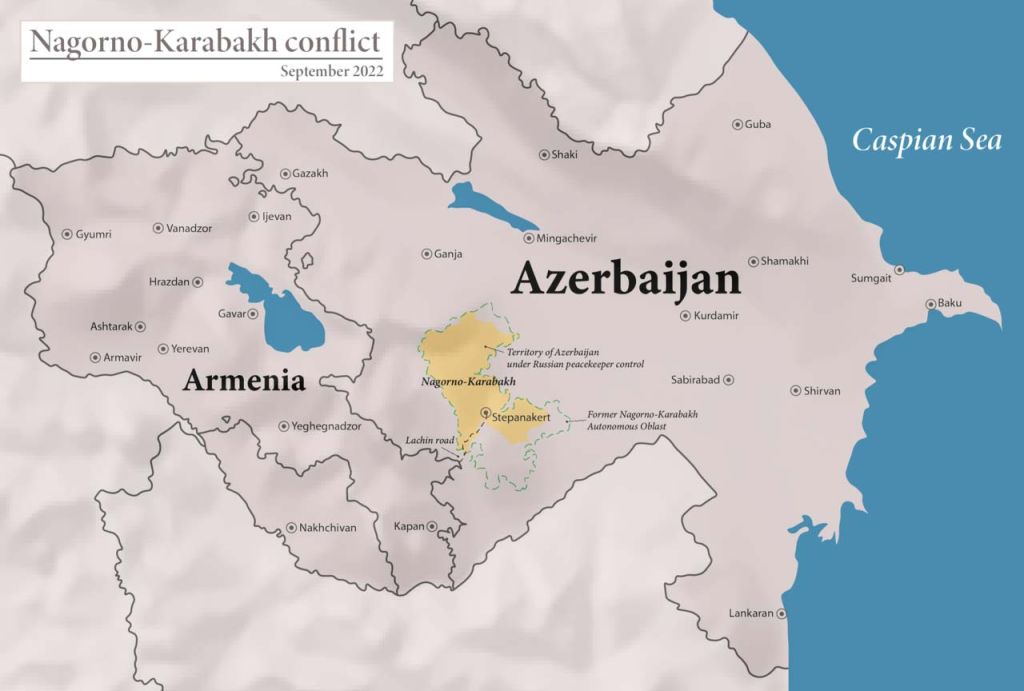Analyzing India's Economic Strategy: Reduced Dependence On Pakistan, Turkey, And Azerbaijan

Table of Contents
Geopolitical Considerations Driving Diversification
The decision to reduce reliance on Pakistan, Turkey, and Azerbaijan is deeply rooted in complex geopolitical realities.
Strained Relations and Political Instability
Historically fraught relationships with these nations have significantly impacted trade and economic cooperation.
- Pakistan: Decades of political tension and intermittent military conflicts have severely hampered bilateral trade. The ongoing Kashmir dispute further complicates economic interactions.
- Turkey: While historically possessing some economic ties, political differences and diverging regional alliances have limited the scope of economic partnerships.
- Azerbaijan: Although relations are relatively stable, India's desire for broader diversification means less reliance on a single region.
Relying on politically volatile regions presents significant risks. Unforeseen political events, sanctions, or trade disputes can severely disrupt supply chains and negatively impact economic stability.
Regional Power Dynamics and Strategic Alliances
India's evolving foreign policy emphasizes strengthening ties with diverse nations. This strategy aims to counterbalance reliance on any single geopolitical bloc.
- Africa: India has significantly increased its engagement with African nations, fostering stronger economic and diplomatic relationships. Increased trade, investment, and infrastructure projects are key aspects of this strategy.
- Southeast Asia: India actively participates in regional forums like ASEAN, promoting greater economic integration and trade within the region. The Act East Policy is a prime example of this regional focus.
- Far East: Strengthened relationships with countries in East Asia, particularly Japan and South Korea, further diversify India's economic partnerships.
Diversifying trade partners mitigates risks associated with regional instability or political shifts. It also unlocks access to new markets, technologies, and resources.
Economic Factors Influencing India's Shift
Beyond geopolitical concerns, several economic factors propel India's diversification strategy.
Market Diversification and Risk Mitigation
Reducing dependence on specific markets minimizes vulnerability to external shocks.
- Export Diversification: A diversified export portfolio protects against market saturation or sudden declines in demand from a single country or region.
- Import Diversification: Relying on multiple sources for crucial imports reduces vulnerability to supply chain disruptions or price volatility.
A diversified trading portfolio enhances economic resilience and reduces the impact of unexpected events.
Exploring New Trade Routes and Opportunities
India is actively exploring new trade routes and partnerships, leveraging initiatives like the "Act East Policy" and participating in regional economic blocs.
- Chabahar Port (Iran): This port provides an alternative route to Central Asia, bypassing Pakistan.
- International North-South Transport Corridor (INSTC): This multimodal transport corridor connects India, Russia, Iran, and Central Asia, enhancing connectivity and trade opportunities.
- Regional Comprehensive Economic Partnership (RCEP): Though India did not join initially, it actively explores opportunities for future engagement.
Infrastructure development related to these new routes is crucial to making these connections effective and lowering transportation costs.
Impact and Consequences of Reduced Dependence
The shift in India's economic strategy will have profound impacts on its future.
Economic Growth and Stability
Diversification is predicted to contribute to long-term economic growth and stability.
- Increased GDP Growth: Access to new markets and resources will likely boost GDP growth.
- Higher Foreign Direct Investment (FDI): A more diversified and stable economy is attractive to foreign investors.
- Job Creation: Increased trade and economic activity will stimulate job creation in various sectors.
While precise predictions are complex, economic models suggest significant positive impacts.
Challenges and Potential Setbacks
Shifting trade partnerships also involves challenges.
- Higher Transportation Costs: Initially, shipping goods to new markets might be more expensive.
- Building New Relationships: Establishing trust and reliable trading relationships requires time and effort.
- Bureaucratic Hurdles: Navigating different regulatory frameworks and customs procedures can be challenging.
Strategies like streamlining customs procedures, investing in infrastructure, and negotiating favorable trade agreements are crucial to mitigate these challenges.
Conclusion: Analyzing India's Economic Strategy: A Path Towards Greater Independence
India's strategic shift away from over-reliance on Pakistan, Turkey, and Azerbaijan reflects a conscious effort to build a more resilient and diversified economy. The drivers behind this change are a complex interplay of geopolitical considerations and economic pragmatism. While challenges remain, the potential benefits – increased economic growth, stability, and reduced vulnerability to external shocks – are substantial. Further research into the success of India's diversification strategy will be crucial to understanding the country's long-term economic trajectory. Continue exploring the intricacies of India's Economic Strategy: Reduced Dependence on Pakistan, Turkey, and Azerbaijan to gain a comprehensive understanding of the complexities involved.

Featured Posts
-
 Maneskin On Jimmy Kimmel Live Damiano Davids Electrifying Performance
May 18, 2025
Maneskin On Jimmy Kimmel Live Damiano Davids Electrifying Performance
May 18, 2025 -
 Dam Square Car Explosion Driver Succumbs To Injuries Suicide Suspected
May 18, 2025
Dam Square Car Explosion Driver Succumbs To Injuries Suicide Suspected
May 18, 2025 -
 How Russias Call For Peace Talks Became A Diplomatic Setback For Putin
May 18, 2025
How Russias Call For Peace Talks Became A Diplomatic Setback For Putin
May 18, 2025 -
 The Face Of Metropolis Japan Contrasts And Comparisons Across Its Major Cities
May 18, 2025
The Face Of Metropolis Japan Contrasts And Comparisons Across Its Major Cities
May 18, 2025 -
 Pregnant Cassie Ventura And Husband Alex Fine Mob Land Premiere Photos
May 18, 2025
Pregnant Cassie Ventura And Husband Alex Fine Mob Land Premiere Photos
May 18, 2025
Latest Posts
-
 Bowen Yang Denies Involvement In Shane Gillis Snl Firing
May 18, 2025
Bowen Yang Denies Involvement In Shane Gillis Snl Firing
May 18, 2025 -
 Where To Watch Shrek On Bbc Three Your Complete Guide
May 18, 2025
Where To Watch Shrek On Bbc Three Your Complete Guide
May 18, 2025 -
 The Wedding Banquet Exploring Queer Asian American Experiences
May 18, 2025
The Wedding Banquet Exploring Queer Asian American Experiences
May 18, 2025 -
 Mike Myers On Shrek His Three Word Response
May 18, 2025
Mike Myers On Shrek His Three Word Response
May 18, 2025 -
 Shrek 5 Official Original Cast Back Zendaya Joins The Fun
May 18, 2025
Shrek 5 Official Original Cast Back Zendaya Joins The Fun
May 18, 2025
